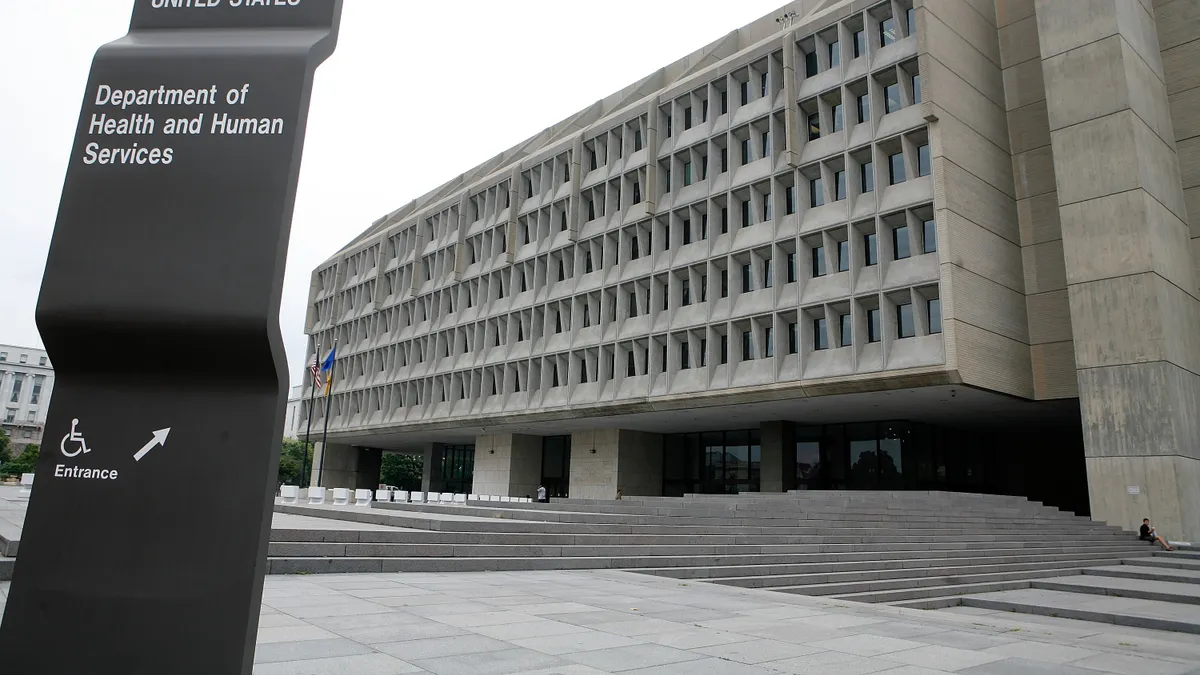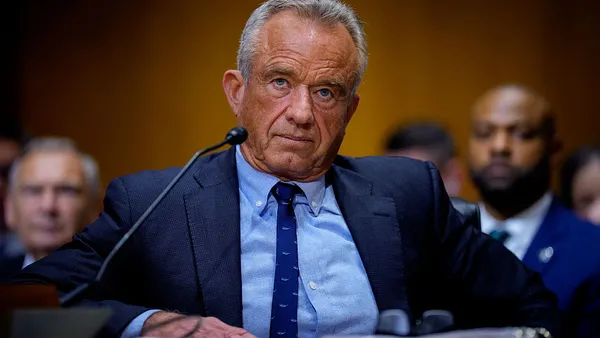FDA review of laboratory developed tests has spurred contentious debate going back decades, with competing views about whether the agency holds regulatory authority. However, public health and legal experts contend it has long been established these diagnostics are medical devices subject to FDA oversight — or so they thought.
HHS shocked the industry in August when it announced FDA would no longer require premarket review for LDTs. The Trump administration defended the abrupt policy change as part of its ongoing review of "regulatory flexibilities" put into place since January's public health emergency declaration in response to the coronavirus pandemic.
However, HHS immediately faced widespread criticism of the decision, made in the midst of America's worst public health crisis in more than a century.
A senior AdvaMed official speaking on background in late September called the move "the wrong call." The trade group is concerned that all diagnostic test developers will not be subject to the same standard of testing validation during the pandemic and beyond.
Scott Gottlieb, who previously served as FDA commissioner in the Trump administration, voiced strong opposition to the new policy, which applies to all LDTs, including COVID-19 diagnostics. Gottlieb in a series of August tweets lambasted the administration for reversing long-standing public health precedent.
While some test developers might question FDA jurisdiction over LDTs, the agency has long maintained that these tests are devices and fall under its purview according to the Medical Device Amendments of 1976.
Gottlieb wrote that "it was long settled that LDTs were medical devices" subject to FDA oversight, an authority "articulated in countless guidances" including one in 2006 cleared by HHS during the administration of President George W. Bush. He also criticized the timing to implement such a far-reaching and potentially damaging policy change as the U.S. continued to struggle to get the spread of the virus under control.
"For the last 6 months, FDA’s device center worked effectively with labs to advance hundreds of tests for COVID. A new HHS policy that extricates FDA from this work - and goes further, by removing any FDA role over any lab developed test - could put this work at risk," Gottlieb wrote.
In particular, Gottlieb warned that as a result of the Trump administration's policy a "plethora" of direct-to-consumer COVID-19 tests could now enter the market and be "processed in a central lab operating outside FDA oversight."
Frank Pallone, D-N.J., chairman of the House Energy and Commerce Committee, called the HHS decision "deeply concerning" as the Trump administration appears to again be interfering with FDA’s regulation of medical products. "Flooding the market with unregulated and potentially inaccurate tests will only further undermine our nation’s response efforts," Pallone said in written statement.
Rachel Sachs, associate professor of law at Washington University School of Law, has concerns that with the new policy change FDA might now go down the same path with LDTs as it did earlier in the pandemic with coronavirus antibody tests, for which the agency did not initially require review.
In mid-March, FDA began allowing developers of serologic assays to self-validate products and bring them to market. However, the agency later acknowledged that its hands-off approach to the regulation of antibody tests caused unintended consequences and FDA reversed track.
"Many of the tests that had entered the market were not of very good quality," said Sachs, who contends there's real potential for the country to experience the same kind of problem with LDTs now that there is no premarket review required.
However, the new policy also has the potential to negatively impact a wide swath of LDTs not related to coronavirus. For instance, the Association for Clinical Oncology in September warned the HHS policy change threatens the safety of cancer care.
"The failure to develop reliable tests that perform as intended, could lead to patients receiving an inappropriate and potentially harmful treatment, or alternatively, not receiving a treatment that has the potential to be beneficial," said ASCO's Chair Monica Bertagnolli in a statement, calling for a regulatory framework that includes a risk-based approach to oversight in which LDTs are thoroughly validated.
Still, Assistant Secretary for Health Brett Giroir in a November press briefing reiterated that FDA does not have regulatory jurisdiction to require premarket review of LDTs.
Whether the incoming Biden administration will seek to reverse the Trump LDT policy remains an open question. However, there may be no regulatory change instituted in 2020 with the potential for more long term disruption to the diagnostics industry than the HHS decision to no longer require FDA premarket review for LDTs.
The "saga" regarding regulation of LDTs has been going on for 28 years and is clearly not over, according to Jeffrey Gibbs, a director at law firm Hyman, Phelps & McNamara, which represents diagnostics and medtech companies.
"I'm sure that President-elect Biden has many other things that are higher on his mind than that. But, this is a topic that will re-emerge," Gibbs said in November.



 Read more
Read more









